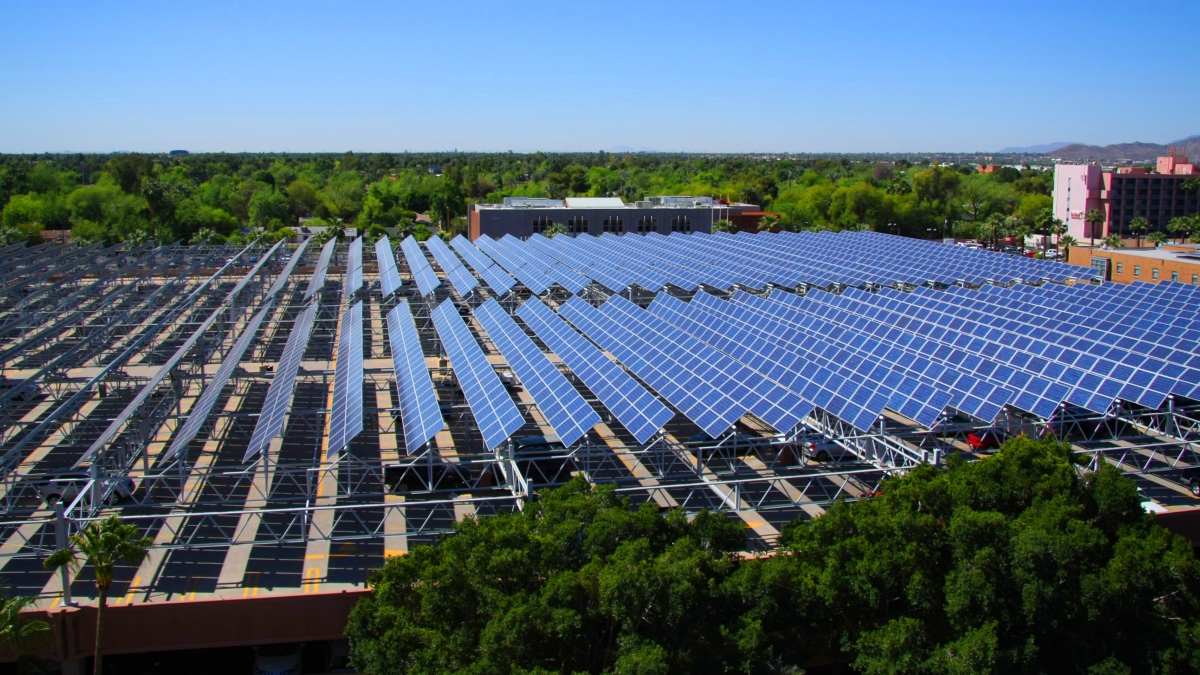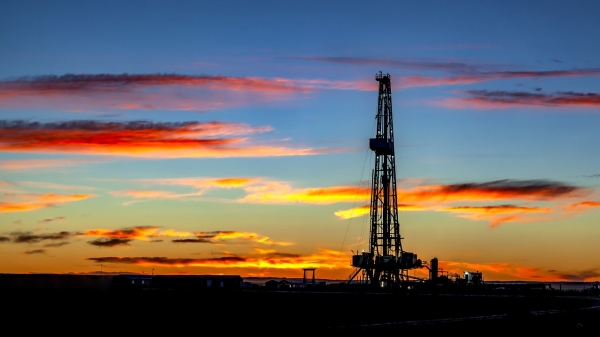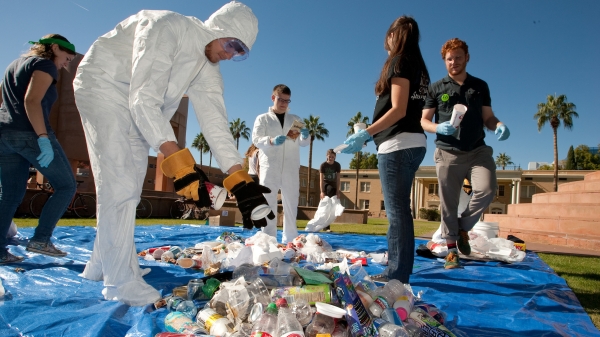ASU recognized for its care for the environment
University lauded by 2 national organizations for sustainability efforts and carbon neutrality

When it comes to sustainability and carbon footprint, Arizona State University has walked the walk and talked the talk for decades.
And those efforts have garnered the university national acclaim.
ASU was recently recognized for its commitment to net zero emissions and use of green power by Times Higher Education and the Environmental Protection Agency.
The twin honors are humbling but a sign of how ASU is tackling climate crisis in order to build a more sustainable future, said ASU President Michael M. Crow.
"The complex challenges posed by climate change and maintaining a habitable planet are a shared human responsibility, and that includes ASU," Crow said. "Our commitment to sustainability takes the form of solutions-based research, pioneering education and leading-edge operating practices, all of which are driven by perpetual innovation and the increasingly vital need to protect our only home."
The Times Higher Education organization believes that universities and colleges are critical players when it comes to having a transformational impact on society. Released in late October, its "Race to Net Zero" report examined how universities around the world are performing when it comes to reducing their own greenhouse gas emissions and transitioning to net zero. It looked at 566 institutions from 81 countries and territories to gauge how they’re tackling climate change.
The report recognizes ASU as one of two universities in the United States — and one of 43 globally — to achieve net zero emissions. The other was American University in Washington, D.C.
In 2020, ASU surpassed its lofty ambition to achieve climate neutrality by 2025 — six years ahead of its original goal.
“The awards recognize ASU’s leadership when it comes to sustainability and planetary health,” said Peter Schlosser, vice president and vice provost of the Julie Ann Wrigley Global Futures Laboratory. “Since almost two decades, ASU has shown the way in not only discovery and learning in the field of sustainability but also practicing the resulting insights on its campuses. Reaching climate neutrality way ahead of our peer institutions is a landmark achievement.”
Also in October, ASU was designated No. 2 in the EPA’s Green Power Partnership Top 30 College & University rankings, just behind the University of California. As of October 25, 2021, the combined annual green power use of the participating colleges and universities on the list amounts to nearly 3.8 billion kilowatt-hours of green power, which is equivalent to the annual electricity use of more than 351,000 average American homes.
This is ASU’s fourth sustainability award in 2021. In August, the university ranked No. 1 on Sierra magazine’s annual “coolest schools” ranking of the most environmentally friendly colleges and universities in North America.
In April, ASU retained its No. 1 national ranking for the second year in a row in the Times Higher Education's Impact Rankings, which examine how universities around the world are performing when it comes to meeting the U.N. Sustainability Developmental Goals, a collection of 17 interlinked goals developed by the United Nations General Assembly intended to be a blueprint for all to achieve a more sustainable future by 2030.
Top photo by Jessica Hochreiter/ASU
More Environment and sustainability

Celebrating Earth Day around the world
Originating in the United States in 1970, Earth Day is now celebrated worldwide. But even before it became an official day, many countries were already mindful of their carbon footprint in their…

A run on fossil fuels: ASU professor says climate legislation could have unintended consequences
As concerns about climate change grow, policymakers are increasingly voicing support for stricter fossil fuel legislation. Their discussions and proposals raise questions about the future of the oil…

Confusion complicates US recycling efforts
In most major cities and buildings, recycling bins can often be found alongside trash bins in an effort to encourage recycling. But is it working? According to the U.S. Environmental Protection…